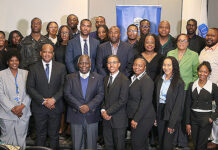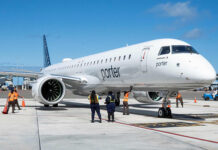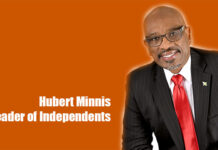
Water and Sewage Corporation (WSC) General Manager Robert Deal said the corporation will move away from quarterly billing and begin monthly billing by the end of the year.
Deal also noted that the corporation is implementing more smart metering systems to combat the 3.16 million gallons of water lost daily.
Deal made the comments during a ceremony to celebrate the 49th anniversary of WSC.
In July 2024 WSC began its installation of smart meters, which were provided by Miya Bahamas, and to date over 6,000 smart meters have been installed across the country. The meters are a part of a non-revenue water (NRW) project that increased leak detection by 300 percent and its repair rate by 40 percent.
Deal said the transition from quarterly billing to monthly billing is expected to reduce high and unexpected bills.
“Monthly billing isn’t just a new schedule, it is a smarter way to serve our customers,” Deal said. “For starters, it offers a better experience with smaller, predictable monthly payments. Customers can better manage their household budgets and avoid the shock of large unexpected bills. It also strengthens the corporation’s financial resilience.
“Monthly revenue helps us better plan, invest, and respond to service needs in a timely way. Operationally, it also helps us to be more responsive where we can catch issues faster and resolve them quicker. Service improves across the board and importantly, it supports long-term sustainability, giving us the consistency and visibility to innovate without compromising stability.
“And let me again emphasize what we have stated on prior occasions, this is not an increase in tariffs. This is simply dividing the present quarterly billing into a monthly billing using the existing tariffs.”
Deal said that the transition to monthly billing is expected to be implemented by the end of the year.
A few months ago, he said that the billing transition would take place once almost all the company’s old, mechanical meters are replaced by smart meters.
The smart metering program is part of an Inter-American Development Bank (IDB) project.
Water and Leaks Department Manager Devon Wilmott said that the smart meters will provide reliable water supply to consumers.
“As a part of this project, we’ve introduced 32 pressure zones across New Providence,” Wilmott said.
“This helps us pinpoint leaks and manage pressure more efficiently, [which] means fewer supply cutbacks and less reliance on booster pumps. Now, why does this matter beyond just fixing leaks? When we manage NRW properly, we unlock major value across the board.
“First, it improves service reliability. Customers experience fewer disruptions and better pressure, especially in areas that historically had issues.
“Second, it supports financial sustainability. Every gallon we recover is a gallon we don’t have to purchase, or produce, which helps us control costs and invest in other parts of our system.
“Third, it boosts our operational efficiency. We’re using better data, acting faster, and getting ahead of the problem before they become major issues.”
Wilmott also said that the corporation plans to take full control of NRW management by December 2026, and it plans to award a contract for NRW work outside of New Providence sometime early next year.
The implementation of the smart metering system has saved the company $138 million in water purchases, he said.







